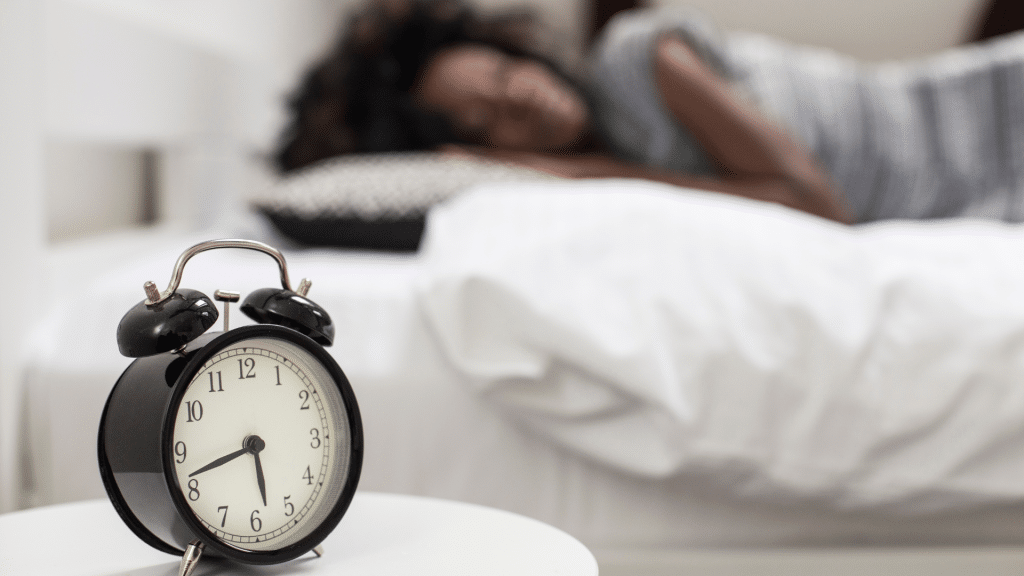By Kathleen Rieke, MD – CentraCare, Member of Professional Advisory Board at EFMN
Sleep is an essential activity that supports healthy brain functioning and allows one to maintain physical health. During sleep, the electrical and hormonal activity in the brain change. These changes reduce stress, improve concentration, help regulate mood, and sharpen decision-making skills. The relationship between seizures and sleep has been recognized since ancient times. Disruptions of normal sleep can trigger seizures for many people. Some people only have seizures during sleep (nocturnal seizures), while others experience seizures from lack of sleep (sleep deprivation). At the same time, epilepsy impacts the balance of light, deep, and dream sleep on seizure-free nights. Antiseizure medications can also impact sleep and wakefulness.
People with seizures may experience increased time to fall asleep, have more light sleep, less dream sleep (REM), and increased nocturnal wakening even without having a seizure. This can lead to less restful sleep and excessive daytime tiredness.
Seizures during sleep are associated with less deep sleep, less dream sleep, and increased nocturnal waking (sleep fragmentation), all changes that further daytime tiredness. These seizures may present in various ways including suddenly waking up, kicking, or thrashing in one’s sleep, or generalized tonic clonic convulsions. Nocturnal tonic clonic seizures also increase the risk of sudden unexpected death in epilepsy patients (SUDEP).
Just as seizures impact sleep, sleep can impact seizures. Sleep deprivation is a common trigger for seizures. Many people have their first seizure after “pulling an all-nighter” for work or school. Sleep deprivation alters the sensitivity of brain cells making it easier for them to fire, increasing the chances of having a seizure.
Like any medication, antiseizure drugs have the potential for side effects including altering sleep and wakefulness. These effects vary from person to person. Some medications are more likely to produce sedation while others may produce more wakefulness. When starting, adjusting, or switching medications it is important to monitor for sleep changes. Talk with your doctor about how your medicine may impact sleep.
Further complicating the issue of sleep are mood disorders, like depression and anxiety, which are very common among people living with epilepsy. Excessive sleep and insomnia can be signs of those disorders.
What affects sleep and what can be done?
- Sleep disorders. Disorders such as sleep apnea and restless legs make falling and staying asleep difficult. Sleep apnea is often associated with snoring. Sleep apnea may prevent deep sleep or only occur in dream sleep (REM) which then disrupts the normal structure of sleep. Restless legs are characterized by an uncomfortable feeling in an arm or leg that occurs when resting and is only relieved by movement.
- Ask your doctor about your symptoms or see a sleep medicine specialist for help. For those people with sleep apnea who cannot tolerate a CPAP mask, there are non-mask treatment options.
- Mood disorders. Depression and anxiety can have a dramatic impact on sleep. Depression can make sleep irregular, causing daytime sleepiness and making nighttime sleep more difficult. Both anxiety and depression may make it difficult to “turn off the mind” and allow sleep.
- Talk with your doctor about options for treating depression and anxiety.
- Consider seeing a sleep psychologist for help with calming the mind to prepare for sleep
- Screen time. Light has a natural impact on sleep. Artificial light from television, computer, and phone screens can disrupt our body’s normal sleep rhythm.
- Avoid bright lights and screens for 6 hours before going to bed if possible.
- Don’t sleep with bright lights on in the room
- Sleep schedule. Setting a normal bedtime routine can help prepare the brain for sleep. Reading, listening to soothing music, or meditating before sleep can help. Regular work hours may be necessary for some people to obtain and maintain good sleep. This may require accommodations at work to standardize schedules.
- Talk to your doctor if you think accommodations might help you.
- Consider a strict wake-up time every day to help stay on track. Try not to adjust this for weekends or vacations.
- Diet and exercise. Exercise has many benefits for health including improving sleep. It can burn off extra calories and expend excess energy. It is also clear that certain foods and drinks may impact sleep even in people without seizures
- Exercise regularly, even if it is a light exercise like walking after supper
- Avoid high-calorie, fatty, or sugary foods before bedtime
- Avoid alcohol before bed. Alcohol can disrupt the normal sleep cycle. It leads to less restful, less efficient sleep.
- Avoid caffeine 6 hours before bedtime
Sleep is a precious commodity in our busy world. For those people living with seizures, its impact cannot be understated. Recognizing and eliminating conditions and situations which affect sleep can help reduce sleep deprivation and daytime tiredness. Diagnosing and treating problems such as sleep apnea, restless legs, depression, and anxiety can improve sleep and improve brain function. Having a regular sleep schedule with a regular wake-up time is beneficial in maintaining a healthy sleep cycle. If you have difficulty managing your sleep talk with your doctor about resources to help your sleep.
Resources for Sleep:
